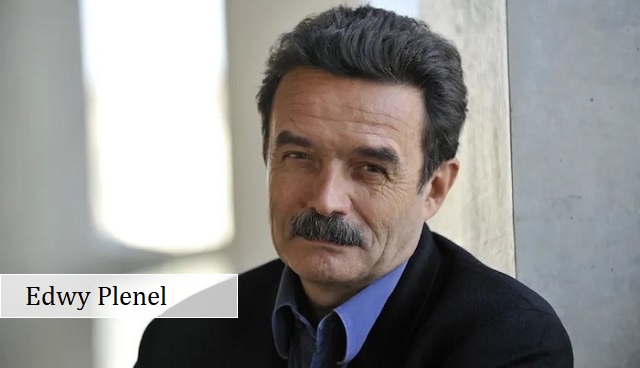Islamo-Leftism [Part 10]

Editor’s note: The following is a translation by Ibn Warraq and Robert Kerr of Michel Onfray’s L’Art d’Etre Francais (The Art of Being French, Bouquins, 2021), published here for the first time. Part 1 is here. Part 2 is here. Part 3 is here. Part 4 is here. Part 5 is here. Part 6 is here. Part 7 is here. Part 8 is here. Part 9 is here.
Let’s have a few laughs when we read the rest of the paragraph in which, on the subject of “the visibility of Muslims in the public space”, Edwy Plenel castigates “recurring polemics, made up of media exaggerations in which a journalism of opinion rather than of information flourishes” (p. 107). Indeed, everyone knows that our author is a news journalist who obviously has nothing to do, but really nothing at all, with opinion journalism!
Fifth: denial. Plenel writes: “Between money and terrorism, the wealth of obscurantist regimes and the violence of fundamentalist radicals, the Muslims of France are caught in a universal reprobation, made guilty of misdeeds and crimes that are distant and foreign to them, simply because of their sense of belonging, origin or belief” (p. 64). Duly noted.
But where and when, by whom and with whom, in what circumstances and on what occasions did Edwy Plenel see that “the Muslims of France,” a new essentialization, were “caught in a universal reprobation,” that they were “made guilty of misdeeds and crimes”? What allows him to assert that the crimes of Muslims, claimed as such at the time they were committed by their perpetrators, who are closely followed by the Islamic State, would have nothing at all to do, nowhere, never, no way, with a certain type of Islam that Plenel encompasses in his plea for Muslims?
There is no universal disapproval of these acts – just go to Iran, the Gaza Strip, Qatar, Saudi Arabia and many other countries; not even French disapproval! Anti-Semitic crimes committed by Muslims who claim their religion to legitimize their acts are numerous, as we know. The list is impressive. What macabre catalogue could an Islamophile produce that would include the crimes and murders committed in France against Muslims on the sole pretext that they are Muslims?
Elsewhere, Plenel goes even further and writes that “never have the crimes been committed by so-called [sic] Muslims” (p. 129) – etc. The title of the journalist’s book is clear: he chose “the” and not “of”, thus “all”. What to do then with those who are undeniably Muslims, observant, who perform the obligations of Islam, do their five daily prayers, respect the prohibitions and practice the rituals, live the observances and have chosen warlike, conquering, military, murderous Islam? What about jihadism? It’s simple: in the eyes of Edwy Plenel, they are not Muslims… The matter is thus easily settled. In my place, on the other side of the fence, Edwy Plenel would probably speak of “revisionism” or “negationism” to describe such a cover-up.
In this vein, in connection with 9/11 and its aftermath, Plenel speaks of “terrorism identified with Islam” (p. 133) – not of Islamic terrorism. To name things, or not to name them, is food for thought. The fact that no mention is made of jihadism in a book devoted to defending “the” Muslims is significant, because if there is a problem, it is not with the Muslims, but only with some Muslims – a minority that besmirches the rest of the community, and it is a serious political and ethical sin, if not a religious and theological one, not to make this distinction.
Sixth, and this will be my conclusion: amalgamation. In the same way that Edwy Plenel rejects essentialization but practices it to excess, he also rejects amalgam [24](p. 164) but practices it with the same ardor… These are probably the mysteries of neo-Trotskyite dialectics! For our author combats only the amalgam that consists in lumping all Muslims together in order to make the entire community pay for a crime (which, incidentally, he does not recognize…) committed by only a handful. With Islam, he does not separate the peaceful wheat from the terroristic chaff – which is a journalist’s pure ideological bias that is tantamount to a discreet blessing of the terrorist cause.
For it is another amalgam to imagine that those who assert that Muslims are all guilty of the crimes of a minority are wrong, whereas he would be right when he asserts that none are. For there are at least among “Muslims” those who perpetrate terrorist attacks and those who do not see anything wrong with them, and even some who support them and who are not a negligible quantity[25].
This is the danger and the trap of essentialization: if we speak of Muslim as an indivisible whole, they must be either all good or all bad. And Plenel has chosen: they are all good. Consequently, what appears to be bad cannot be Muslim. How then can we still have a debate?
COLUMN BY
REFERENCES:
[24] It is quite common in French newspapers and magazines to warn readers after each terrorist attack to refrain from automatically associating Islam with Terrorism, by adding the phrase “pas d’amalgam.”
[25] [Onfray’s footnote]:An ICM poll published by Newsweek reveals that 16% of French Muslims support the Islamic State. This support rises to 27% among 18-24 year olds. A Pew Research Center poll shows that 42% of young Muslims in France support suicide bombings.
RELATED ARTICLE: Turkey’s Long Persecution Against Pontian Christians
EDITORS NOTE: This Jihad Watch column is republished with permission. ©All rights reserved.


Leave a Reply
Want to join the discussion?Feel free to contribute!